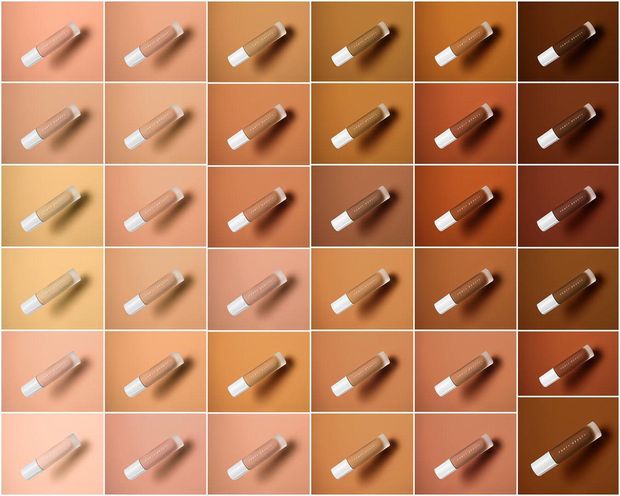“Coffee,” “almond,” and “medium deep” are not the only shades of black skin, but you wouldn’t know that by browsing a drugstore beauty aisle. For decades, black beauty brand owners have worked towards creating products that cater to black women of all skin tones and types. Vera Moore established her own line of skincare products for black women in 1979. Iman’s namesake brand, which serves “women with skin of color,” launched in 1993.
Aside from Iman Cosmetics, can you name three black-owned beauty brands off the top of your head? If you thought of Black Opal, Black Radiance or black|Up, the gag is they’re not actually black-owned. And though they do make products designed for black skin, many black-owned beauty brands have suffered from a lack of visibility.
With such few accessible brands representing a range of darker skin tones, black people are often left with limited options to achieve desired looks. If a person of color wants to contour, they shouldn’t have to resort to using black eyeshadow because there are no darker hues available.
Nor should essential skincare products leave skin smothered in white residue. Beyond the aesthetic of makeup, black people need products that tend to their skincare needs: hyperpigmentation and protection from the sun’s damaging rays, among other things. Black consumers deserve to be acknowledged in the beauty industry. Period.
And that’s why some brands are dedicated to catering to black women’s needs. I spoke to four black CEOs who established their own melanin-friendly brands and shed light on the importance of diversifying the industry. Read more
